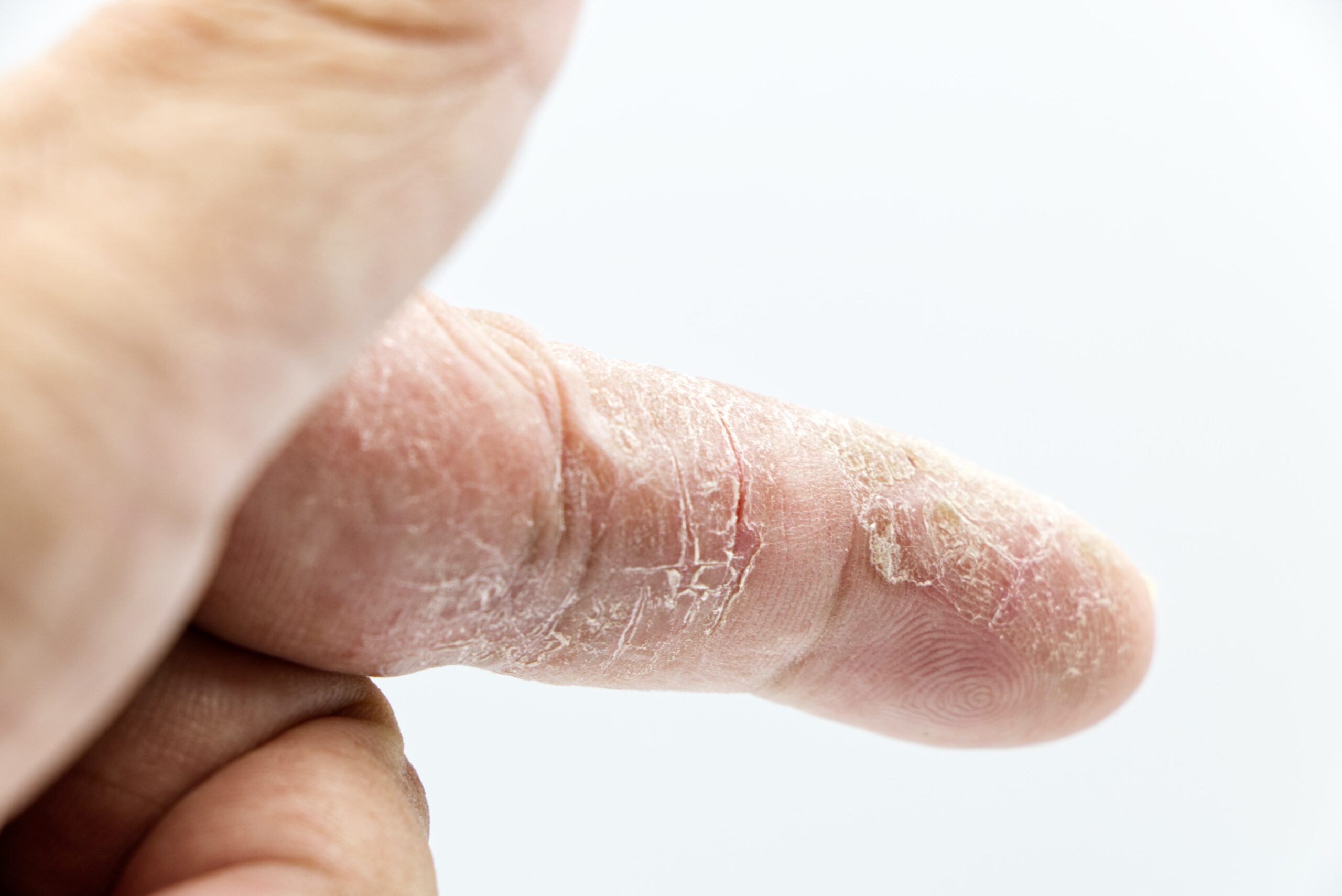If you are someone who deals with dry itchy skin in the winter then this article is for you. I struggle with hand eczema that flares up every winter like clockwork. I also work in healthcare and am constantly having to wash my hands in between seeing patients. Ironically I tell my patients with hand eczema to not overwash their hands. It’s one of those do as I say not as I do situations. Fortunately, since I work in dermatology I have a never-ending supply of moisturizers and prescription strength topicals at my disposal to help manage my condition. For those who do not, it can seem like an endless struggle until it starts to become warmer outside. To help, I have put together a list of the types of rashes that tend to flare more commonly in the wintertime, as well as how to manage them so you can get on with your life without having to constantly focus on your dry skin.
Eczema
Eczema is also known as the itch that rashes. This means you can take perfectly normal skin, itch it, and cause a rash to appear. Common areas to get eczema are the hands, eyelids, the crooks of your elbows, and behind your knees. The key to treating eczema is using hypoallergenic products and moisturizing the heck out of your skin multiple times a day. My favorite moisturizer is plain Vaseline. However, a lot of people don’t care for the greasiness so my second favorites to recommend are Cetaphil or CeraVe cream. Ointments and creams are better for moisturizing than lotions.
Eczema flares in the winter because the cold winter air dries the skin out more. It is imperative to always apply a moisturizer to the skin after it has been washed. This includes after a shower or bath and also after washing your hands. Dove bar soap is typically a safe option that I like to recommend for my eczema patients. Dove also has a good moisturizing hand soap. You want to avoid anything that can irritate the skin further so scented products should be considered off-limits. This means no more Bath and Body Works hand sanitizers or lotions!
Related: What You Should Be Doing and Not Doing If You Have Eczema
Psoriasis
Psoriasis is an auto-immune condition that tends to run in families. Common areas to get psoriasis include the elbows, knees, shins, and scalp although you can get it anywhere. Most people with psoriasis know that’s what they have but others with new-onset psoriasis may be unaware. It can sometimes be confused with eczema and while first-line treatment options are similar to that of eczema, once it becomes more progressed it is essential to see a dermatology medical provider for prescription-strength treatments.
Since psoriasis is one of those notorious rashes that flare with dry and cold winter weather you want to follow similar steps as those who have eczema. You may also have scalp involvement where it is difficult to apply a good moisturizer. Tar shampoos as well as an over-the-counter product called Scalpicin (Hydrocortisone 1%) may be helpful in mild cases of scalp psoriasis.
Related: 4 Important Things to Know If You Have a New Diagnosis of Psoriasis
Seborrheic dermatitis
Seborrheic dermatitis is medical-grade dandruff. This most commonly affects the scalp but can also affect your face typically in the eyebrows, beard, or creases of the nose. It is an overgrowth of yeast on the skin. Seborrheic dermatitis can worsen with stress and weather changes. While some people may experience a flare with warmer weather others can experience worse flaking in the winter.
Fortunately, it can be fairly simple to treat with over-the-counter options although some people will still need prescription-strength medications. One of my favorite over-the-counter antidandruff shampoos is Nizarol which is Ketoconazole 1%. The prescription version of this is Ketoconazole 2%. You can use it as a shampoo and also as a face wash if you are experiencing seborrheic dermatitis on your face. I normally recommend patients use it 2 to 3 times per week in the shower. You want to lather it and let it sit for 5 to 10 minutes before rinsing. You can follow that up with Scalpicin on the scalp if particularly itchy.
Related: How to Combat a Dry Flaky Itchy Scalp
Final thoughts on rashes that flare in winter weather
If your skin is becoming dry and itchy there are multiple reasons this could be happening. If you have a chronic rash that tends to flare every winter, you may be experiencing one of these 3 types of rashes. When in doubt always seek help from a medical professional. If you have psoriasis there may be other medical implications. Make sure you are using hypoallergenic products and moisturizing your skin regularly. Carry a thick ointment or cream with you wherever you go and apply it multiple times per day. And for goodness’ sake stay away from perfume and cologne. (You will thank me later.)
Do you have a rash that flares in the winter? Comment below with what you have found to be most helpful!
*Disclaimer: Opinions expressed are solely my own and do not express the views or opinions of my employer. Information on this website is for education and entertainment purposes only. Content is my opinion. It is not substituted for your own doctor’s medical care or advice. One should not make any health or medical-related decisions based in whole or in part on any content on this site. Content is not intended to replace the services of a licensed, trained health professional. Content may not apply to you as an individual. Although I will update my website with current information, this website is not a definitive guide to dermatology.

View comments
+ Leave a comment